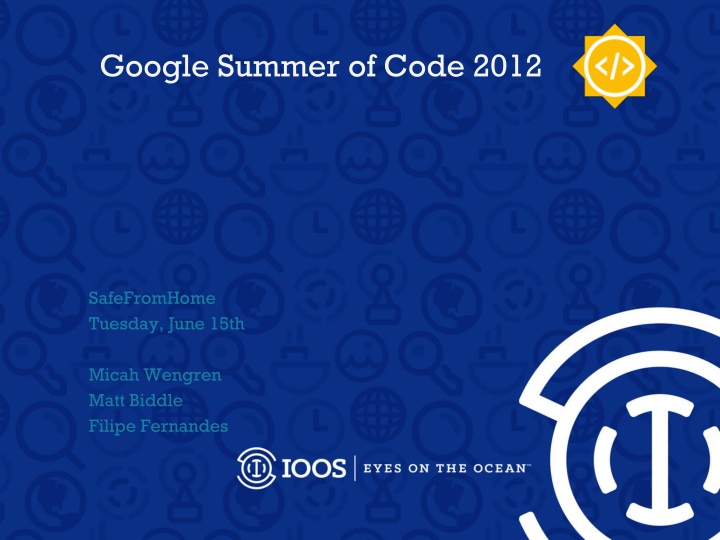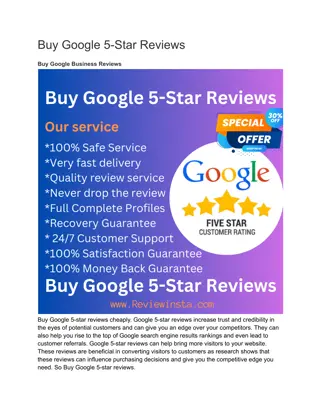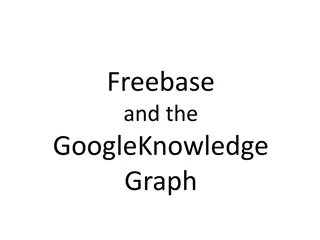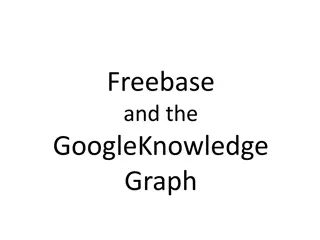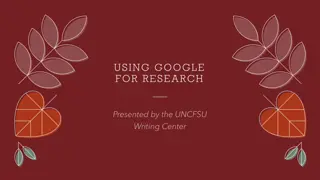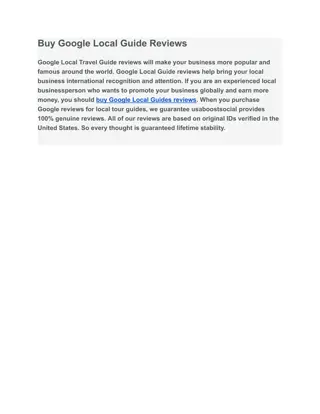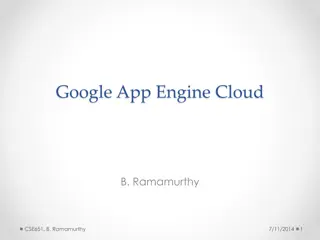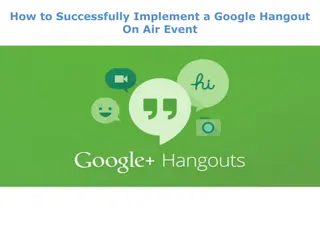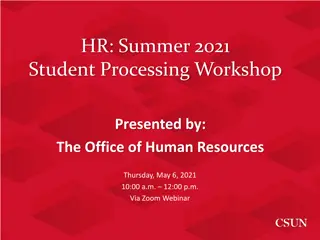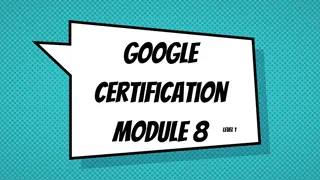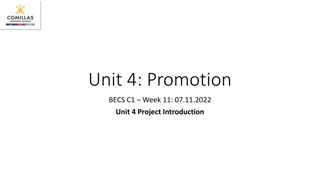Google Summer of Code 2012 - Overview and Changes in 2021 Edition
Google Summer of Code (GSoC) is a global initiative involving student developers in open source software projects. The program, which began in 2005, has seen significant growth with over 16,000 students from 111 countries working with 715 open source organizations. However, in the 2021 edition, there are notable changes including reduced coding time, stipends, and evaluation sessions, along with new eligibility criteria. The program continues to attract talented individuals like Qi Zeng and Callum Rollo who are contributing to projects related to oceanic and environmental sciences.
Download Presentation

Please find below an Image/Link to download the presentation.
The content on the website is provided AS IS for your information and personal use only. It may not be sold, licensed, or shared on other websites without obtaining consent from the author.If you encounter any issues during the download, it is possible that the publisher has removed the file from their server.
You are allowed to download the files provided on this website for personal or commercial use, subject to the condition that they are used lawfully. All files are the property of their respective owners.
The content on the website is provided AS IS for your information and personal use only. It may not be sold, licensed, or shared on other websites without obtaining consent from the author.
E N D
Presentation Transcript
Google Summer of Code 2012 SafeFromHome Tuesday, June 15th Micah Wengren Matt Biddle Filipe Fernandes
Google Summer of Code (GSoC) is a global program focused on bringing more student developers into open source software development. Students work with an open source organization on a 10 week programming project during their break from school. 2
16,000+ STUDENTS, 111 COUNTRIES 16 YEARS, 715 OPEN SOURCE ORGANIZATIONS 38,000,000+ LINES OF CODE 3
GSoC and Met/Ocean and related Sciences: Clear Climate Code 52North OPeNDAP ESIP Probably more 4
Changes in GSoC 2021 Edition 1. Reduced Time Period for Coding: 175-hour project over a 10- week coding period. 2. Reduced Stipend: Almost half of the stipend given last year. 3. Eligibility: Students enrolled in post-secondary academic programs along with who are graduated between December 1, 2020, and May 17, 2021. And, all those students who are studying in licensed coding schools. Applicants should not have participated in GSoC more than once because. 4. Reduced Evaluation: From 2021, the number of evaluations is also reduced from 3 to 2. 5
Qi Zeng: ERDDAP Translation Second year computer science & math undergraduate student in Georgia Institute of Technology. Will be working on translating ERDDAP's user interface to other languages to improve the oceanic data's accessibility to non- English countries. 7
Callum Rollo: erddapy/gliderpy PhD student with the glider group at the University of East Anglia, UK. PhD is focused on the use of an ADCP on an autonomous marine glider. Lead a Python users group and teach introductory Python at UEA and online with The Carpentries. Contributor to GliderTools, a Python toolbox for glider data processing. Outside of work I kayak, cycle tour and try to learn Spanish. 9
Munakala Lohith: ML/JupyterBook 3rd Year computer science undergraduate from Indian Institute of Information Technology Kalyani. Specialising in computer vision and image processing. Deep learning enthusiast. 11
Thank you! Google for granting 3 slots Micah Wengren for the support with the application Mathew Biddle, Benjamin Adams, Dalton Kell, and Bob Simons
Extra Slides Can we do more than GSoC? Outreachy Hacktoberfest Google Code-in 15
